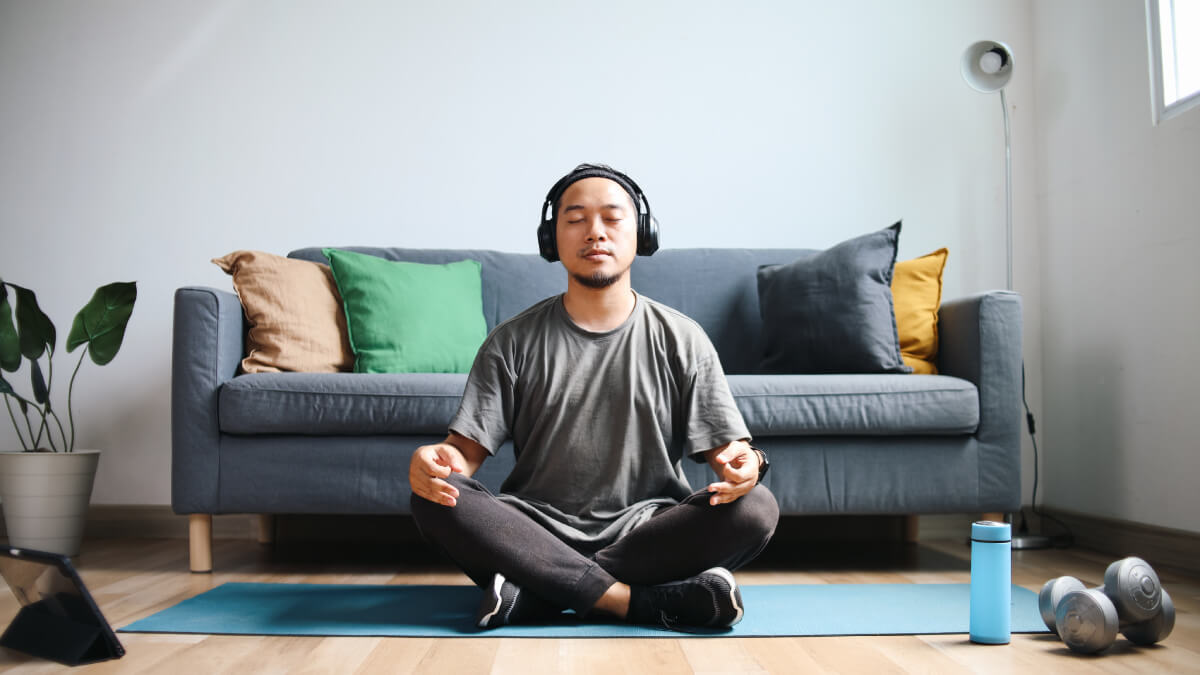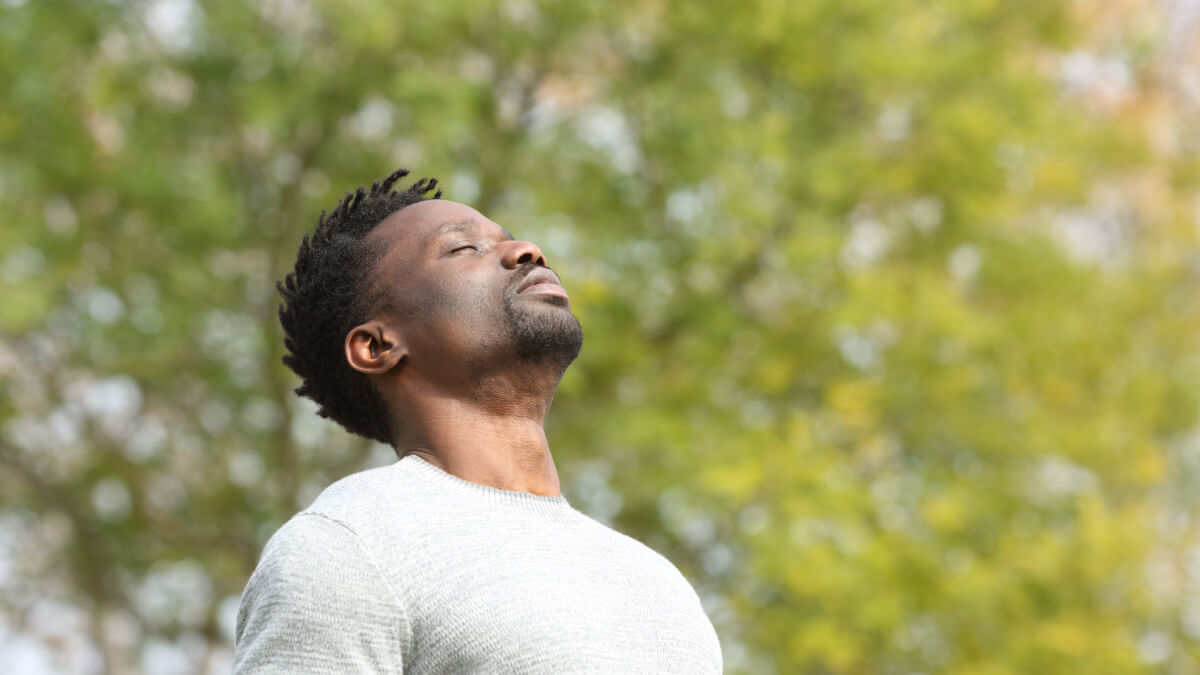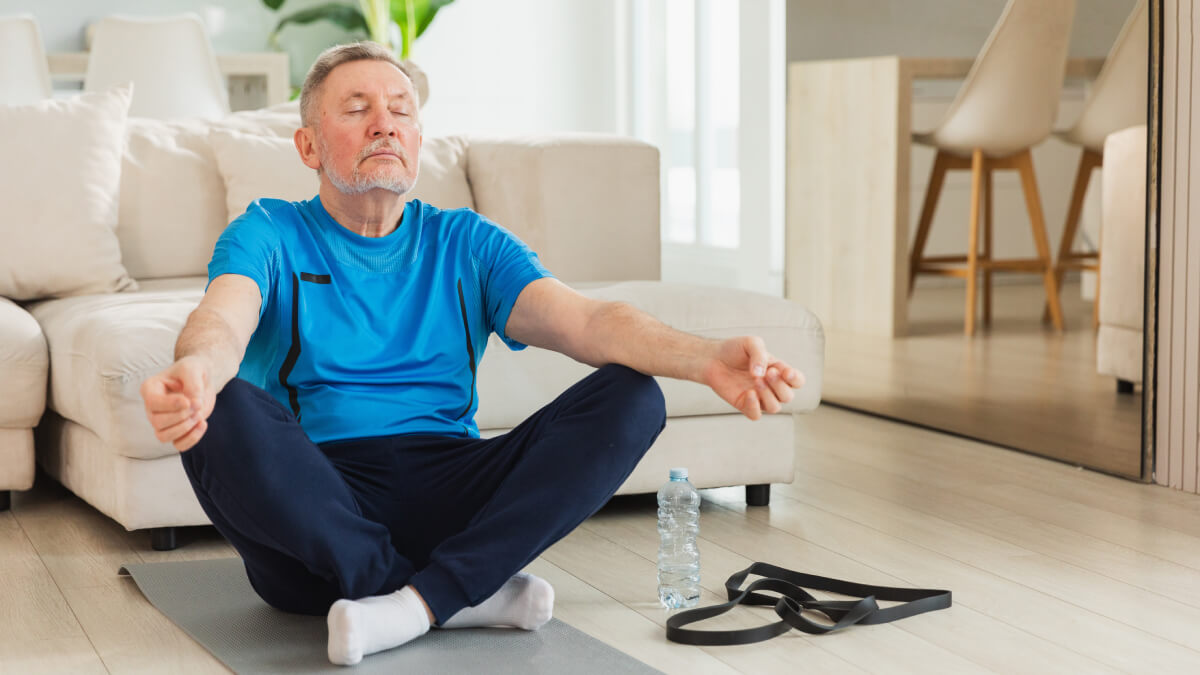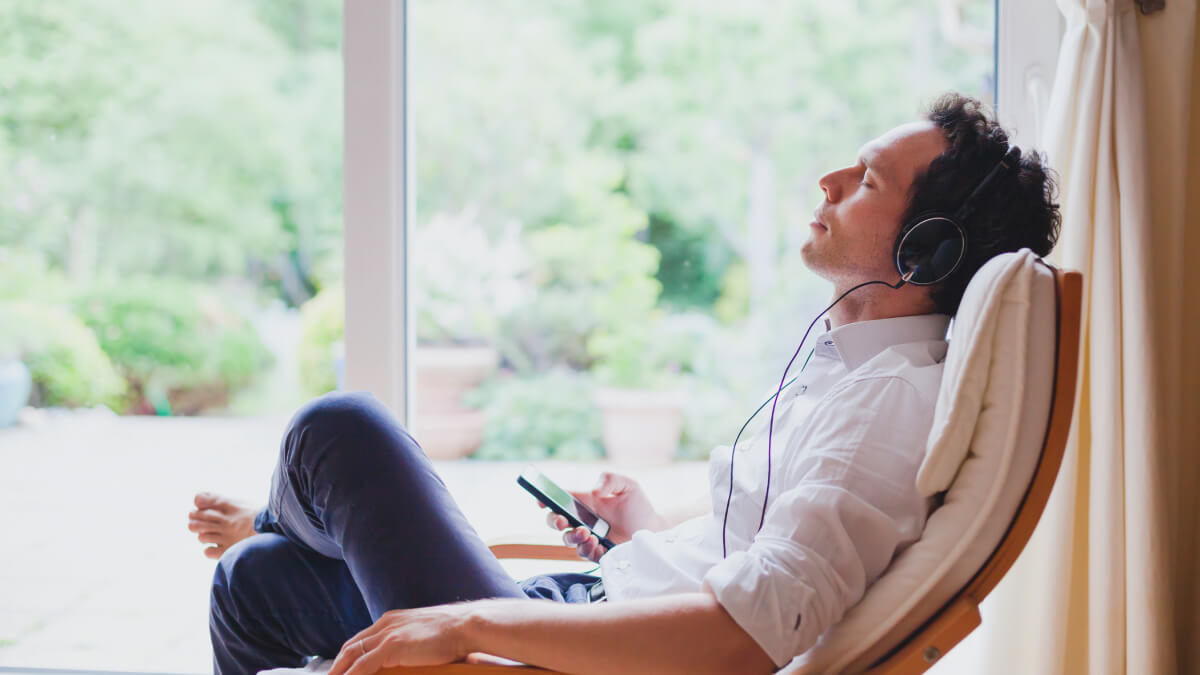The benefits of meditation are widely publicised—reduced stress, improved focus, better sleep—yet convincing yourself to give it a go can be massively challenging. Whether you’re unsure where to start or scared to be alone with your thoughts, it’s natural to feel overwhelmed by the prospect of meditation. So, in this article, we’ll be breaking down the barriers surrounding meditation, allowing everyone to tap into its advantages. Keep reading as we explain how to meditate for beginners.
How To Meditate For Beginners In 6 Easy Steps
Meditation has been around for centuries, but we’ve only begun to understand the extent of its benefits in recent years. Today, it’s the go-to method of stress relief for millions worldwide. Just a few minutes of meditation can release pent-up tension in a way that few other methods can. In its most basic form, meditation is paying attention to our breath as it goes in and out. This alone helps us remain present and slow down our hectic day-to-day thoughts. So, if you struggle to find clarity amidst your busy mind, you’re in the right place to do something about it.
What Is Meditation?
Records of meditation date back over 3500 years, and nearly every religion, including Buddhism, Hinduism, Christianity, Judaism and Islam, incorporates it in some way. The earliest forms of meditation aimed to deepen the understanding of life’s mystical forces, and while this still exists to some extent today, modern meditation is all about achieving a relaxed state. It’s no longer tied to any specific religion, allowing those from all walks of life to develop a style of meditation that suits them.
Meditation can take on many different forms, but there are two main types:
- Concentrative Meditation: This involves focusing on one specific thing and tuning out everything else around you. This might be a specific word, your breath, or a mantra to reach a higher state of being.
- Mindfulness Meditation: This focuses on being aware and present by paying acute attention to the things you’re feeling, physically and mentally. Mindfulness can target different issues, such as depression and anxiety, meaning its focus may differ from practice to practice.
Meditation isn’t about changing who you are or preventing negative thoughts from entering your mind. It’s about learning to observe them without judgement and re-establishing a healthy perspective. There’s no such thing as perfect meditation, so think of it like any other skill. With consistent practice, you’ll become more comfortable and better understand how it can benefit you most.

Meditation For Stress And Anxiety
As science and technology have improved, our understanding of meditation has developed to reveal just how beneficial it can be for our bodies and minds. Very few techniques offer the breadth of mental health benefits that meditation does, and these advantages accumulate with consistent, repeated practice.
Stress reduction is one of the most common reasons people turn to meditation; many studies have found that this decision is more than justified. Mental and physical stress often causes increased levels of cortisol, the stress hormone. Heightened cortisol can have a serious knock-on effect on our holistic health by disrupting sleep, increasing blood pressure, and contributing to fatigue and cloudy thinking. Research has found that those who consistently practice mindfulness meditation have lower cortisol levels. Additionally, meditation has been found to improve symptoms of stress-related conditions, including irritable bowel syndrome, post-traumatic stress disorder, and fibromyalgia.
In addition to its stress-relieving abilities, meditation is one of the most effective ways to control anxiety, particularly in those with the highest levels of anxiety. Studies have also found that those who meditate have developed better coping mechanisms for stress and anxiety.
In fact, meditation can transform almost all aspects of physical and mental health. This is largely due to its hugely beneficial impact on sleep. One study found that those who practice mindfulness-based meditation stayed asleep longer and had improved insomnia severity compared to those who didn’t. People who meditate find it easier to relax their bodies and release tension before bed, allowing them to fall asleep quickly and claim the wealth of benefits sleep provides.

How To Start Meditating
Part of what makes meditation so popular is its accessibility. Anyone can meditate wherever they are without needing access to any special equipment. Whether you’re on the bus or in bed, all you’ll need is a few minutes to yourself. That said, there are some meditation basics you should know before you get stuck in. These will help take the pressure off your meditation and give you a better chance at embedding mindfulness into your routine.
Don’t Expect Instant Results
One of the main reasons people struggle to stick to a meditation routine is the lack of tangible results within the first few days. While some research has suggested meditation can improve calmness and clarity from the very first session, the true benefits of meditation reveal themselves after a lengthy period of consistent practice. Develop a system to track your routine and progress, allowing you to pick up where you left off if you’ve missed a day or two.
Don’t Wait For The Perfect Setting
When we wait for everything to be just right before meditating, we create pressure to maintain an unsustainable environment and routine. Whether it’s first thing in the morning or last thing at night, in a busy household or a quiet space, choose to meditate whenever you think it will benefit you the most. It’s natural to feel overly sensitive to noise during meditation, so don’t try to block any sound distractions out. Instead, notice them and return to focusing on your breath.
You Only Need A Few Minutes
A common misconception about meditation is that you need to set aside lengthy periods of your day to notice any positive changes. In fact, effective meditation can take as little as 5 minutes. Shorter meditations are much easier to fit into a busy routine and can have similar stress-reducing effects to longer sessions. As you become more experienced with meditation, you may want to start increasing the time you spend doing it, but a 5-10-minute meditation is great for beginners.
Sit And Dress However You’re Most Comfortable
There’s no right or wrong way to meditate, so as long as your body is relaxed, you can sit and dress however you’d like. It’s a good idea to wear unrestrictive clothing and remove any accessories you tend to fidget with, but your meditation set-up is entirely down to you.
5 Minute Meditation
To get you started on your meditation journey and round off our guide, we’re going to take you through a simple 5-minute meditation that you can practice anywhere. You can adjust these steps as you see fit and increase the time if you’d prefer. So, find somewhere you can relax and give it a go:
- Take A Seat: Sit down in an environment you think you’ll be able to relax in. Whether you’re in a chair, cross-legged or kneeling, make sure you’re in a stable position that will remain comfortable for the length of your meditation. You can even lie down if this works best for you.
- Set a Timer: Use your phone to set a meditation timer. For beginners, it will help to keep it between 5 and 10 minutes, but this type of meditation can be extended to any length.
- Feel Your Breath: Begin by focusing on your breathing. Inhale through the nose and exhale through the mouth. Follow the sensation of your breath as it goes in and out.
- Acknowledge Your Wandering Thoughts: Your attention will inevitably leave your breath and wander elsewhere. Notice these thoughts and allow them to reach a natural conclusion before returning your focus to your breath.
- Avoid Judgment: Passively observe your thoughts without obsessing over their content or judging them. Allow them to pass by.
- Close With Attention: When you feel ready, start to move your body, gently lift your gaze and open your eyes if they’re closed. Pause in this moment and notice the sounds of your environment, how your body feels and your thoughts and feelings.

Give Meditation A Chance
It’s clear that meditation offers an accessible and profoundly effective way to manage stress and anxiety, improve focus, and enhance overall well-being. While the idea of meditating might seem daunting at first, breaking down the practice into simple, manageable steps can make it far more approachable for those who are just starting out. By understanding the basics, starting with just a few minutes a day and maintaining a non-judgmental awareness of your thoughts, you can gradually integrate meditation into your daily routine. Remember, the benefits of meditation accumulate over time with consistent practice, so be patient and hold yourself accountable on your meditation journey.
When it comes to mental health, there’s no one-size-fits-all solution, so don’t be disheartened if meditation doesn’t have as transformative of an effect on your well-being as you’d like. Throughout the LADZ app, you’ll find a range of support systems, advice articles, and lifestyle plans to help you reclaim control of your mental health. From therapy to fitness, explore our features and find something that aligns with your needs.






